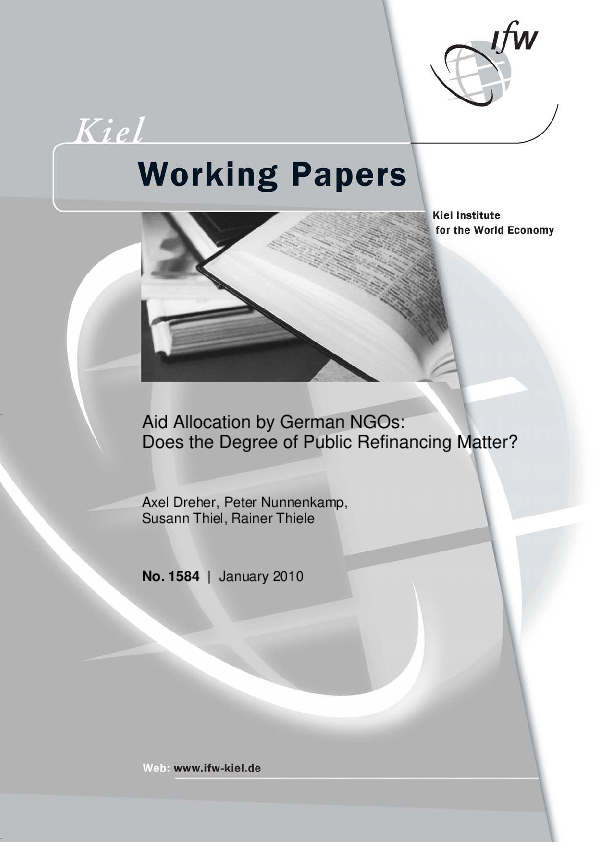Working Paper
Aid Allocation by German NGOs: Does the Degree of Public Refinancing Matter?
Authors
Publication Date
JEL Classification
Key Words
Related Topics
Emerging Markets & Developing Countries
Germany
Using a new dataset for 41 German non-governmental organizations (NGOs), we analyze the allocation of NGO aid across recipient countries in a Tobit regression framework. By identifying for each NGO the degree of public refinancing, we address the largely unresolved issue of whether financial dependence on the government impairs the targeting of NGO aid. It turns out that German NGOs are more active in poorer countries, while they do not complement official aid by working under difficult local conditions. Beyond a certain threshold, rising financial dependence weakens their poverty orientation and provides an incentive to engage in “easier” environments. In addition, we find that the NGOs follow the state as well as NGO peers when allocating aid. This herding behavior is, however, hardly affected by the degree of public refinancing.






